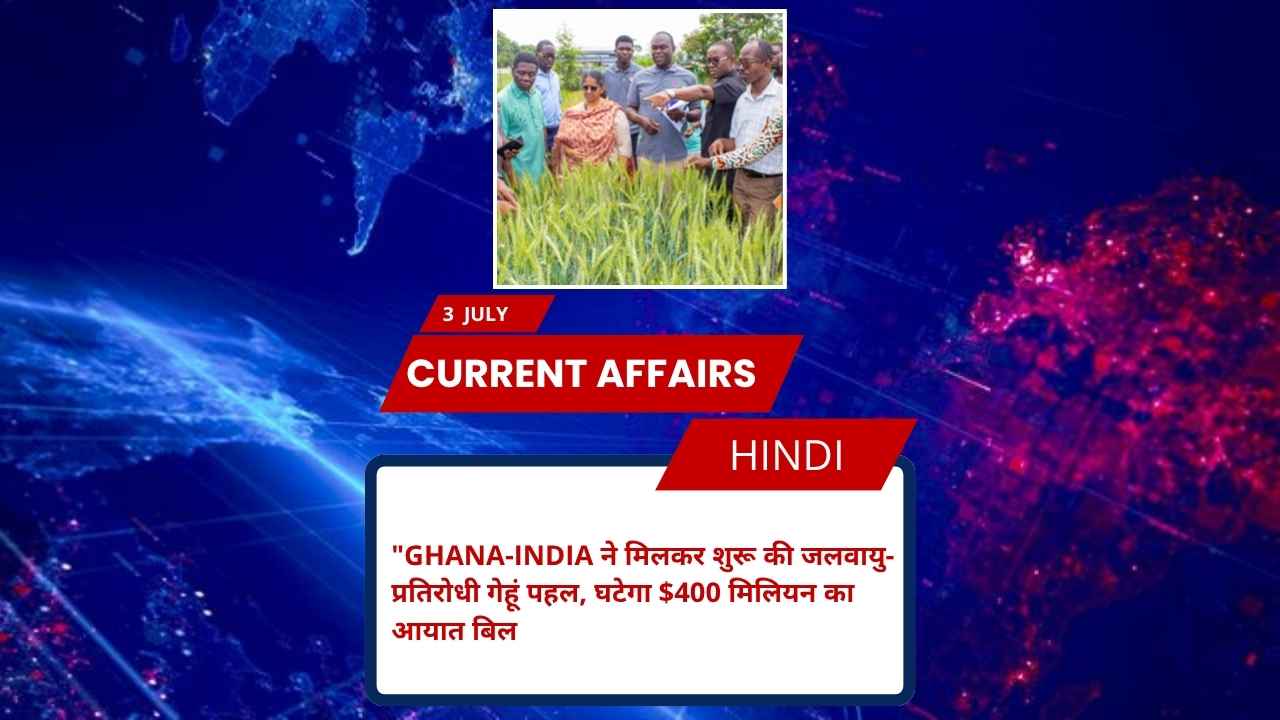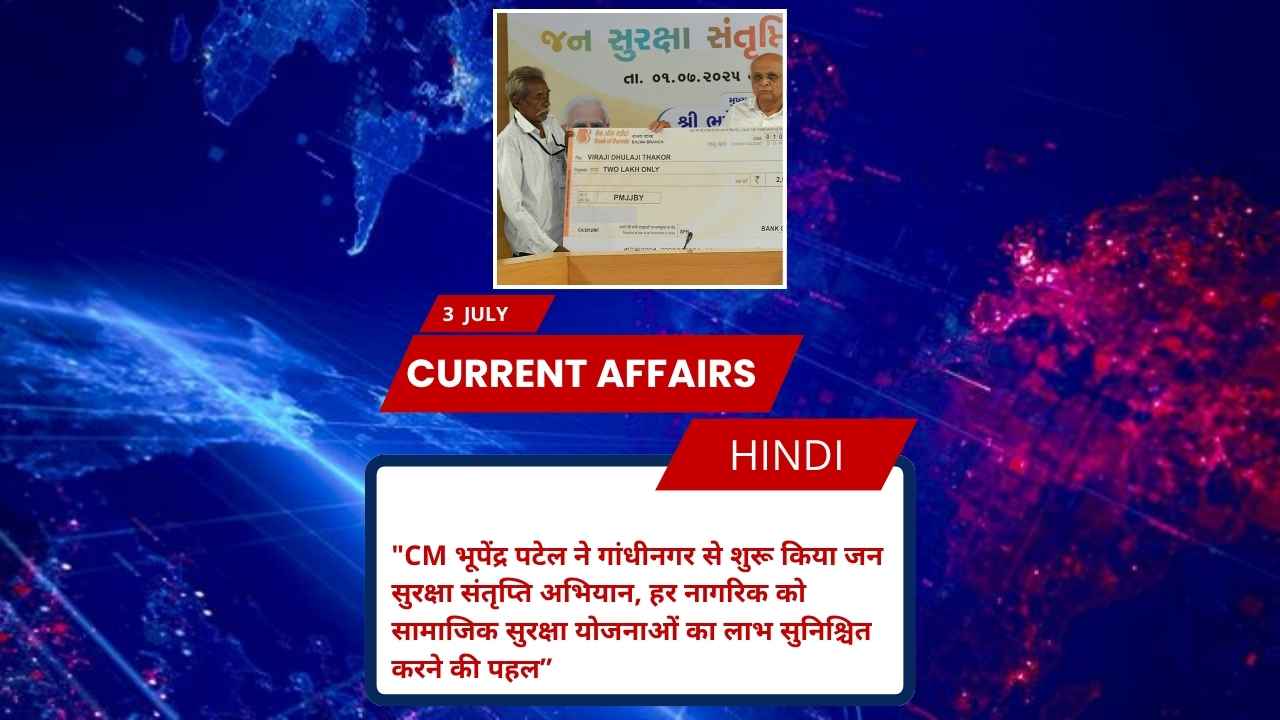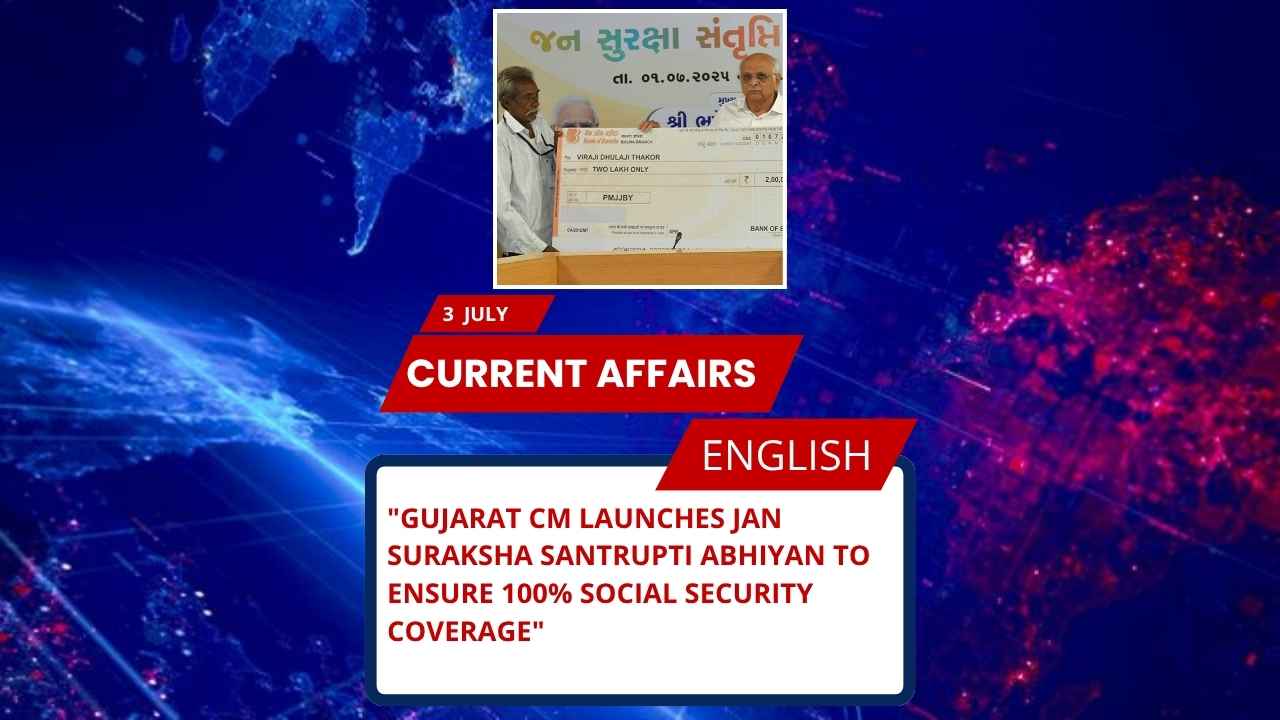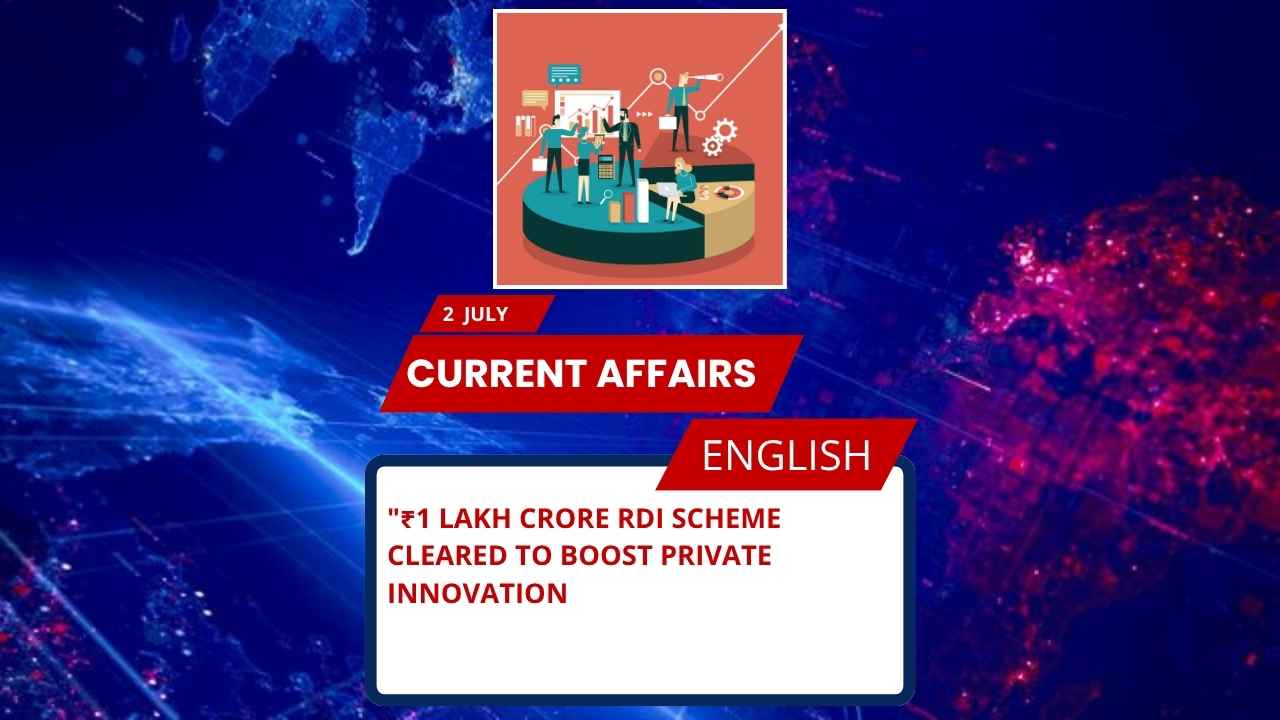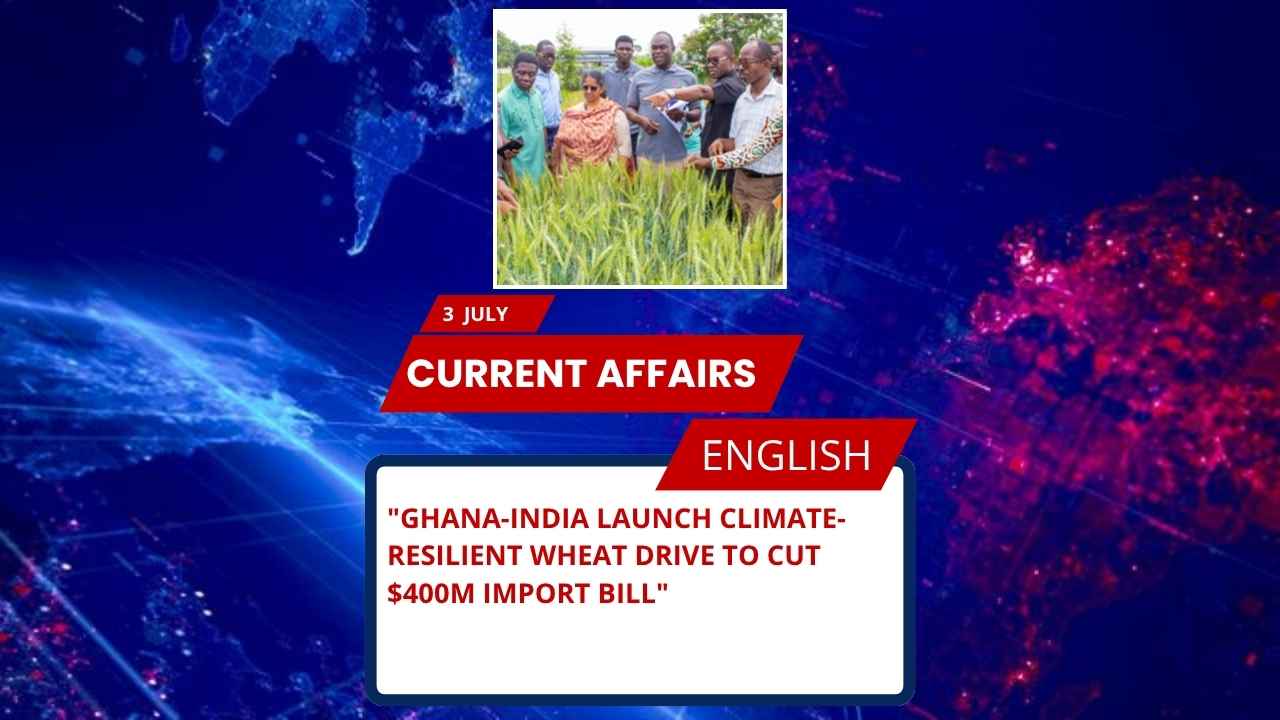
Key Points for SSC/UPSC and Other Govt Exams
- Ghana launched a climate-resilient wheat initiative in partnership with India’s Arima Farms and CSIR-Crops Research Institute.
- Initiative aims to reduce Ghana’s wheat import bill (over $400 million annually).
- It strengthens South-South Cooperation in agriculture between India and Ghana.
- Arima Farms MD Saalai Manikam highlighted PM Modi’s global influence in leadership.
- The collaboration is seen as a new phase in India–Ghana relations focused on food security and sustainable agriculture.
Ghana–India Wheat Partnership: Full Details
A Bold Step Towards Food Self-Sufficiency
In a strategic agricultural breakthrough, Ghana has partnered with India to launch a climate-resilient wheat initiative, designed to cut the West African nation’s dependence on costly wheat imports. Currently, Ghana imports over $400 million worth of wheat each year — a figure that strains its economy and food security.
The initiative is a joint collaboration between Arima Farms (India) and CSIR-Crops Research Institute (Ghana), focusing on introducing wheat varieties that can withstand Ghana’s changing climate conditions. The goal is not only to ensure sustainable wheat production but also to empower local farmers with advanced agro-technologies and training.
India’s Growing Influence in Africa
At the launch event, Saalai Manikam, Managing Director of Arima Farms, emphasized the importance of South-South cooperation and India’s increasing leadership in agricultural diplomacy. She stated that many Ghanaians admire Prime Minister Narendra Modi’s leadership style, and this partnership reflects India’s expanding global reach, especially in sectors like sustainable agriculture and technology sharing.
This wheat initiative symbolizes a new chapter in India–Ghana diplomatic ties, especially in the field of agriculture, food resilience, and climate adaptability. It’s a landmark for both nations and can be a model for other developing countries facing similar challenges.
Important Facts: Ghana
- Capital: Accra
- President: Nana Addo Dankwa Akufo-Addo
- Currency: Ghanaian Cedi (GHS)
- Major Rivers: Volta River, Pra River
- Agriculture Importance: Cocoa, maize, rice, cassava, and now wheat
- Research Institution Mentioned: CSIR–Crops Research Institute
- Partner Country: India
- Partner Indian Entity: Arima Farms
- International Cooperation Type: South–South Cooperation
Exam-Oriented MCQs
Q1. Which country recently partnered with India for a climate-resilient wheat initiative?
a) Nigeria
b) Kenya
c) Ghana
d) Ethiopia
Answer: c) Ghana
Q2. What is the name of the Indian firm involved in the Ghana wheat initiative?
a) Bharat Agro
b) Arima Farms
c) Vedanta Seeds
d) Krishi Vikas
Answer: b) Arima Farms
Q3. What is Ghana’s approximate annual wheat import bill?
a) $100 million
b) $200 million
c) $300 million
d) $400 million
Answer: d) $400 million
Q4. What is the capital of Ghana?
a) Lagos
b) Nairobi
c) Accra
d) Lusaka
Answer: c) Accra
Q5. Which research institute from Ghana is part of the wheat project?
a) African Crop Bureau
b) CSIR–Crops Research Institute
c) Ghana Agro Board
d) West Africa Plant Lab
Answer: b) CSIR–Crops Research Institute
UPSC-style FAQs with Model Answers
Q1. What is South–South Cooperation and how is it reflected in the Ghana-India wheat initiative?
Answer:
South–South Cooperation refers to the collaboration among developing countries, particularly in areas like technology transfer, agricultural practices, climate adaptation, and sustainable development. The Ghana–India wheat initiative is a prime example, where India is helping Ghana introduce climate-resilient wheat, demonstrating mutual growth without relying on developed nations. This partnership enhances agricultural innovation and strengthens food security in the Global South.
Q2. Why is the Ghana–India wheat partnership strategically important for India’s foreign policy?
Answer:
The Ghana–India wheat partnership aligns with India’s Africa outreach strategy, which emphasizes development-led diplomacy. By aiding Ghana in achieving food security, India is not only strengthening bilateral relations but also showcasing its leadership in climate-resilient agricultural innovation. This move reinforces India’s role as a responsible global partner, especially in the context of sustainable development and South–South Cooperation.
Q3. Discuss how climate-resilient crops can contribute to national food security in vulnerable nations like Ghana.
Answer:
Climate-resilient crops are bred to withstand extreme weather, such as droughts and floods. In countries like Ghana, where changing rainfall patterns and rising temperatures threaten agriculture, these crops can stabilize yields and reduce dependency on imports. The Ghana–India wheat initiative is a practical example of this approach, targeting wheat — a key staple — to be grown locally with enhanced resilience. It ensures food availability, reduces import bills, and boosts rural employment.
Q4. What are the economic implications of reducing a $400 million wheat import bill for Ghana?
Answer:
Reducing such a large import bill helps Ghana in several ways: it improves trade balance, reduces pressure on foreign currency reserves, and allows reallocation of funds to other developmental areas. Moreover, by developing a local wheat farming ecosystem, Ghana can generate employment, boost rural incomes, and stimulate agribusiness innovation. This has a cascading positive effect on national GDP and food self-sufficiency.
Q5. How does the involvement of Indian private firms like Arima Farms reflect the changing nature of India’s foreign aid strategy?
Answer:
India’s foreign aid and development cooperation now increasingly involve the private sector, indicating a shift from state-led assistance to partnership-driven collaboration. Arima Farms’ role in the Ghana wheat initiative shows how Indian firms are exporting expertise, tech, and innovation under the larger umbrella of South–South Cooperation. It reflects India’s confidence in leveraging its private sector for strategic diplomacy and sustainable development abroad.

